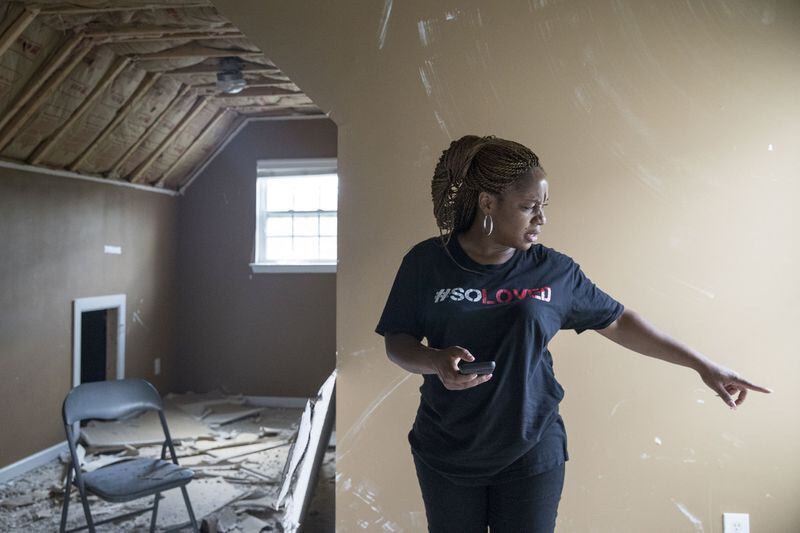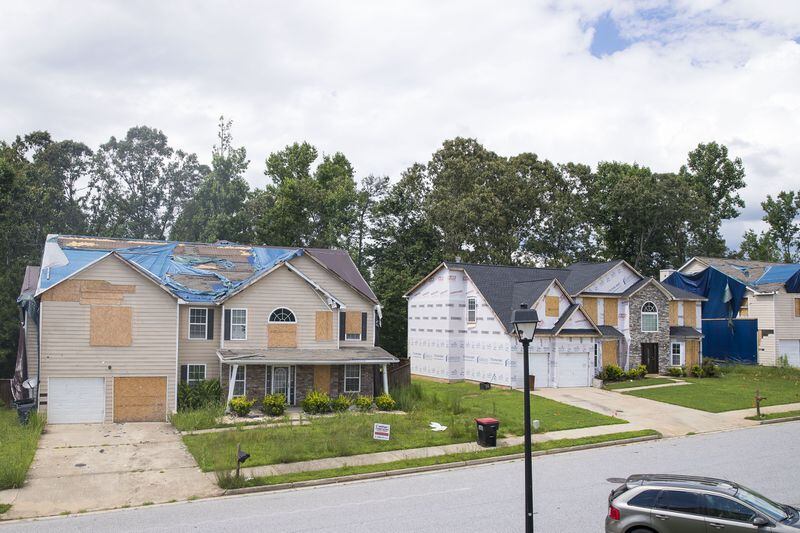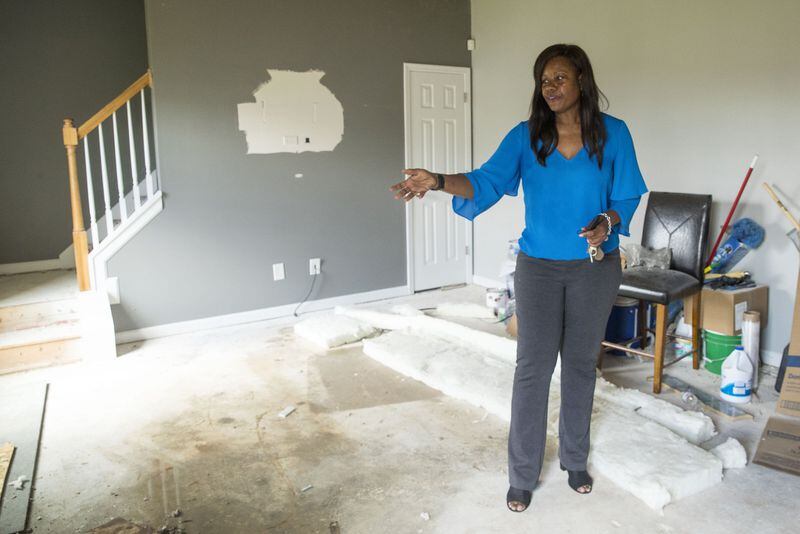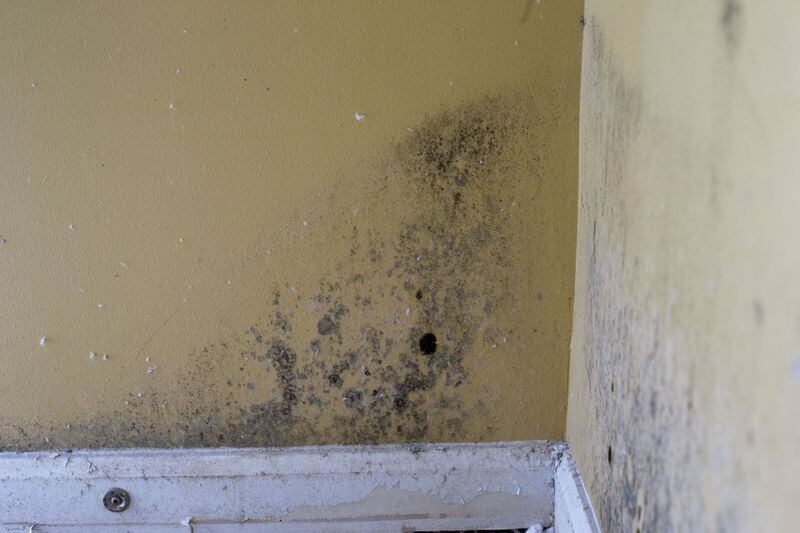Tracey Stalling thought she’d be home by now.
In March, a tornado ripped through her South Fulton neighborhood, separating the stairs from the wall of her home, knocking out windows and sending torrents of rain gushing through light fixtures and vents. For 17 minutes, a terrified Stalling and her two daughters hid in a closet under the staircase while their house shook around them.
Almost four months later, Stalling, like many of her neighbors, is still displaced and worries that the dozens of agencies that descended upon their Chestnut Ridge subdivision with promises of help — from state and county officials to disaster relief workers — have forgotten about them.
Many residents are still holed up in extended stay hotels, staying with relatives or, in a few cases, renting a second residence while work is being done on their homes.
“It’s like when there is a death,” said Crystal Shaw, another resident of the community displaced by the storm. “People are there in the beginning, but then they disappear.”
The tornado was one of three that struck North Georgia near midnight March 19, leaving a trail of destruction in Chestnut Ridge and in two areas in Haralson County. No one was killed, but a Haralson man was hospitalized after a tree fell on his home in Buchanan.
The damage, however, was not severe enough to trigger state or federal disaster relief, limiting aid for residents. Instead of getting federal funds, they turned to insurance companies and relief agencies, including the Metro Atlanta chapter of the American Red Cross, the United Way of Greater Atlanta and local churches and schools.
Residents said they are thankful for the support they’ve gotten, but it doesn’t cover all of their needs. Those include help for the renters who didn’t have insurance because it is not required, financial assistance for wages lost as homeowners skip work to be at their houses to talk to contractors, and money to pay for stepped-up policing to monitor for break-ins, which have increased as their community has been in the media spotlight. Homeowners in the community had insurance — a mandate to secure a mortgage — though some policies may not pay 100 percent on replacement costs.
“We’ve had issues in the subdivision,” Stalling said of the break-ins. “You wouldn’t think people would take advantage of people who have been in a tornado, but they do.”
Bill Edwards, the South Fulton mayor, said the damage wasn’t bad enough for a relief declaration.
“If there’s a declaration there we can sign that will help these people, will someone please bring it to me? I will sign it in the morning,” he said. “If you’re not in your house by now, I think you’ve got to call your insurance company.”
Disaster relief, Edwards said, only applies to people without insurance. And in Fulton County, there’s a $3.8 million threshold for damages before the county will step in. For the state, he said, it’s even higher: $15.2 million in damage that isn’t insured.
“Based on the threshold, it’s not something we could have applied for,” he said.
A spokesman for Georgia Insurance Commissioner Ralph Hudgens, who visited the site the day of the storm, said the state did not get involved because there wasn’t enough damage. The office is, however, “assisting consumers who are having difficulties or questions with their claims,” the spokesman said.
Fulton County spokesman Darryl Carver said county employees have collected debris and attended outreach events for residents, but there’s a limit to what they can do.
“We’re trying to help them in the way we are allowed to help them,” Carver said. “We care about these people. These are our neighbors.”
Seeking shelter
At first, Stalling said she was told she could return home in July. But one look at her home and it’s easy to see why that’s not yet possible.
Her house still bears the scars of the tornado. There are puddles in the living room, loose insulation on the second floor and the staircase that separated from the wall during the storm still has gaps. Instead, she is living with family members.
Shaw, who lives across the street from Stalling on Jumpers Trail, has been in an extended-stay hotel since March. Her home has developed mold above a fireplace in the living room as water keeps getting in the house because of the frequent rain.
Michelle Milligan, who lives on Shire Lane, said everyone in the neighborhood was affected. Every day a new fence is going up or a tarp on a roof is coming down. While her home is livable, she’s still doing repairs, and just replaced her gutters this week.
“There’s a lot of families impacted,” Milligan said. “Probably every single house has had damage.”
Churches, the Red Cross and other relief organizations brought clothes, toiletries and other help immediately after the tornado. But since then, the relief has been sparse.
Bob Klein, an associate professor of risk management and insurance at Georgia State University, said rebuilding after a disaster can be a difficult task.
Those in sync with their insurance carrier can usually expect a smooth process, though even the most well-thought out projects always encounter a hitch. But if an insurer and a customer are not on the same page — say a dispute over who will do the work and at what cost — homeowners can find themselves feeling victimized again by shoddy work or an endless timeline for repairs.
“There can be disagreements between the homeowner and the insurance company on replacement costs that can draw things out,” he said.
South Fulton City Councilwoman Naeema Gilyard said she understands the community's frustrations, but said local governments are helping. She said South Fulton has removed trees and limbs from the neighborhood, provided clothing, cleaning products and temporary lodging to residents who requested help and formed a task force to assess what more needs to be done.
Carver said Fulton County has helped connect residents to other services. Gilyard made a connection to United Way, which then reached out to Catholic Charities. That organization provided $500 each for residents who have been displaced. Though the money has not yet reached all of them, a second disbursement was expected to be available this past Friday.
“We need specifics,” Gilyard said. “We need an itemized list of what their needs are. It’s difficult to try to help if you don’t know what the need is.”
Making decisions
The disaster has taken time from Stalling’s life — she visits her home each day to check on contractors’ progress, and must stop at the post office each week to pick up her mail, which is being held while her house is being repaired.
“We may be insured, but we still have needs,” Stalling said. “We’ve still got to eat.”
Milligan said had it been a bigger storm or had more people been uninsured, the community would have gotten more relief. As it is, those who have it are waiting on insurance companies and hoping that relatives' kindness don't wear out.











